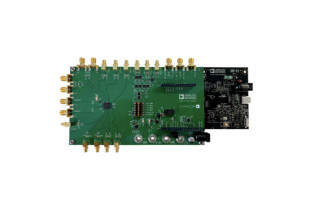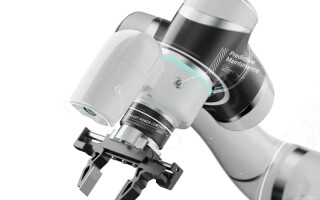Addressing security, software, and test system needs
July 01, 2008
Blog

Spotlight on the Trusted Computing Group, Object Management Group, and LXI Consortium.
Trusted Computing Group
The Trusted Computing Group (TCG) is an industry organization
that develops and promotes open, vendor-neutral, industry-standard
specifications for trusted computing building blocks and software interfaces
across multiple platforms. In an effort to enable more secure computing, TCG
offers a portfolio of specifications implemented by vendors that manufacture
PCs, servers, networking gear, applications and other software, hard drives,
and embedded devices.
In April, TCG members demonstrated products based on the
Trusted Network Connect (TNC) architecture, an open solution for network
security. The TCG also introduced a new TNC protocol, the Interface for
Metadata Access Point (IF-MAP), which defines a publish/subscribe/search
protocol that enables a wide range of systems to share data about network
devices, policies, status, and behavior in real time. By integrating network
and security components, IF-MAP can strengthen networks beyond simple admission
control and endpoint integrity assurance to continuous post-admission
assessment and control.
Object Management Group
Stringent performance is required in a broad range of computer
applications, from enterprise-scale systems handling bookings and online
financial transactions to compact systems embedded in software radios, cell
phones, medical equipment, and vehicles. Whether their code is running on
enterprise servers or embedded within devices, companies that design these
mission- and time-critical systems tackle their shared challenges using similar
design approaches.
The Object Management Groupís (OMGís) modeling standards,
including the Unified Modeling Language (UML) and Model-Driven Architecture
(MDA), give designers powerful visual tools to build, execute, and maintain
software and other processes. The groupís middleware standards and profiles are
based on the Common Object Request Broker Architecture (CORBA).
OMG can submit specifications directly into ISOís fast-track
adoption process. The groupís UML, MetaObject Facility (MOF), and Interface
Definition Language (IDL) standards are already ISO standards and ITU-T
recommendations. OMGís ninth annual Distributed Object Computing for Real-time
and Embedded Systems Workshop slated for July 14-16 will provide a forum for
engineers to learn about new design approaches, share their experiences, and
explore emerging standards.
LXI Consortium
LXI is the LAN-based successor to the General-Purpose
Interface Bus (GPIB). The LXI standard goes beyond GPIB to provide additional
capabilities that reduce the time it takes to set up, configure, and debug test
systems. LXI also helps integrators leverage the time and effort invested in
system software and architecture. The LXI Consortium, a nonprofit corporation
comprised of leading test and measurement companies, aims to develop, support,
and promote the LXI standard.
LXIís flexible packaging, high-speed I/O, and prolific use of
LAN address the needs of various commercial, industrial, aerospace, and
military applications. The LXI standard creates capabilities that optimize test
throughput, overall system performance, and cost efficiency in a way that
allows engineers to build powerful, Web-enabled test systems in less time.
Last November, the LXI Consortium approved the latest version
of the LXI standard (Version 1.2). To date, almost 500 products have been
certified as LXI compliant, and annual LXI-equipped test and measurement system
sales now exceed $200 million.




